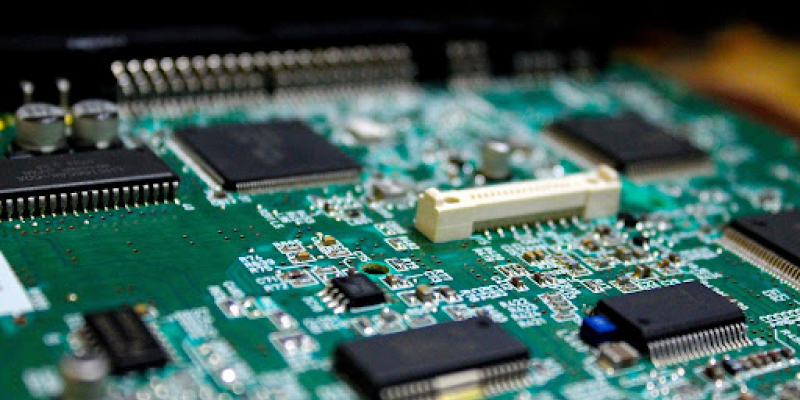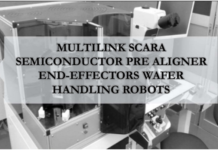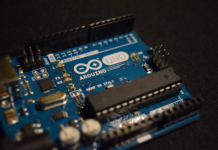Semiconductor equipment has a host of applications. This is especially true in manufacturing, where they get used in making some parts of electronic devices. Almost all modern electronic devices we use daily, like smartphones, computers, and many more, have semiconductor equipment.
There’s no doubt that the most effective application of semiconductor equipment is in the manufacture of electronic devices. You can imagine a world without the smartphone you use daily. That is what it probably would be if there were no semiconductor equipment in the world.
However, most people barely know anything about how the world benefits from semiconductor equipment. That’s what this article seeks to help people learn today. It will discuss all you need to know about semiconductor equipment applications in the manufacturing world.
Let’s get started by first understanding what semiconductors are.
What Are Semiconductors?
The first step to understanding how semiconductors help is knowing what they are. Well, they are materials that have conductivity between conductors. These are generally metals, and they can get used in various industries, especially in electronic device manufacturing, as said earlier.
Semiconductors have properties that make them unique from other materials. For instance, they can conduct electricity in certain conditions, thus the use of the name ‘semi .’ It is easy to control how they conduct electricity, making them perfect for the manufacture of different electronic parts.
Some other properties of semiconductors include:
- They act as insulators at zero kelvin but become conductors at increasing temperatures.
- They are small, weigh less than conductors, and have lesser power losses.
- They have higher sensitivity than conductors but lower than insulators.
- When temperature increases, their resistance decreases, and vice versa
Examples of semiconductors include gallium arsenide, germanium, and silicon. You can find items like silicone rubber flexible heaters or film heaters made using semiconductors. It is also common to find semiconductors in solar cells, laser diodes, and many other items.
Application of Semiconductor in Daily Life
As mentioned before, the various electronic devices you use daily have semiconductors. Thus, you interact with them daily, and you may not realize it most of the time. We have already mentioned some of the applications of semiconductors in our daily lives.
Here are the most common:
- Manufacture of devices like phones, computers, calculators, etc.
- Manufacture of solar devices and parts like solar plates
- Control of temperatures in electronic rice cookers
- Used in 3D printing machines
- Used in self-driving cars
- Used in temperature sensors for air conditioners
Those are the major applications of semiconductors in the world today. We cannot overstate the various uses you can put semiconductors into. As said before, their properties, especially in how they conduct electricity, make them ideal for manufacturing various items.
For instance, they help make silicone rubber, polyester and Kapton heaters. Hi-heat industries, a key player in the manufacturing sector, uses semiconductors as a primary raw material. So many other industries use these materials to make safe, reliable, and durable products for sale.
Why Are Semiconductors Used?
Semiconductors get used in manufacturing various items. The reasons for using them may differ depending on what item is getting manufactured. However, most reasons connect to the unique properties of semiconductors. This is especially regarding how they conduct electricity.
As said earlier, it is easy to control the electrical conductivity of semiconductors. You can do this by doping either phosphorus or boron in a silicon semiconductor to get an n-type of p-type semiconductor. This makes them ideal for the making of the various parts mentioned earlier.
For a complete novice who is learning, the doping process entails adding impurities to the semiconductors. The impurities used here are several suitable replacement atoms. Adding them increases semiconductors’ conductivity, making them ideal for industrial use.
Advantages of Semiconductors

Flexible heaters silicone rubber used in industries offer excellent temperature control and heat distribution. This is because of the unique properties of semiconductors listed before. So, what benefits do these properties bring to the manufacturing world? They include;
- Better portability – As mentioned earlier, semiconductors are small and weigh less than most insulators and conductors. Equipment made from semiconductors is therefore highly portable.
- Require less power – Semiconductors are known for producing a high output voltage, as you may see with flexible silicone heaters. However, they require a lot less energy to do this.
- Shockproof devices – Semiconductors are solid-state devices, a feature that makes them shockproof. This makes them ideal for use in manufacturing a lot of home equipment.
- Long lifespan – devices made from semiconductors can last longer than those made from conductors. This makes the material more reliable for the manufacture of various equipment.’
- Noise-free – Semiconductors do not make any irritating noises when in operation. This makes devices made from this material to be noise-free.
Those are the significant advantages of using semiconductors in industries. As you can see, these materials offer a wide range of benefits that you cannot get with conductors. The best benefit most likely is how they allow users to decide the temperatures they need for their work.
In short, you do not get limited in any way when using semiconductors. It is possible to make handheld devices using them as raw materials. They’ll require less power to operate, be highly portable because of their small size and weight, and be also shockproof for better handling.






